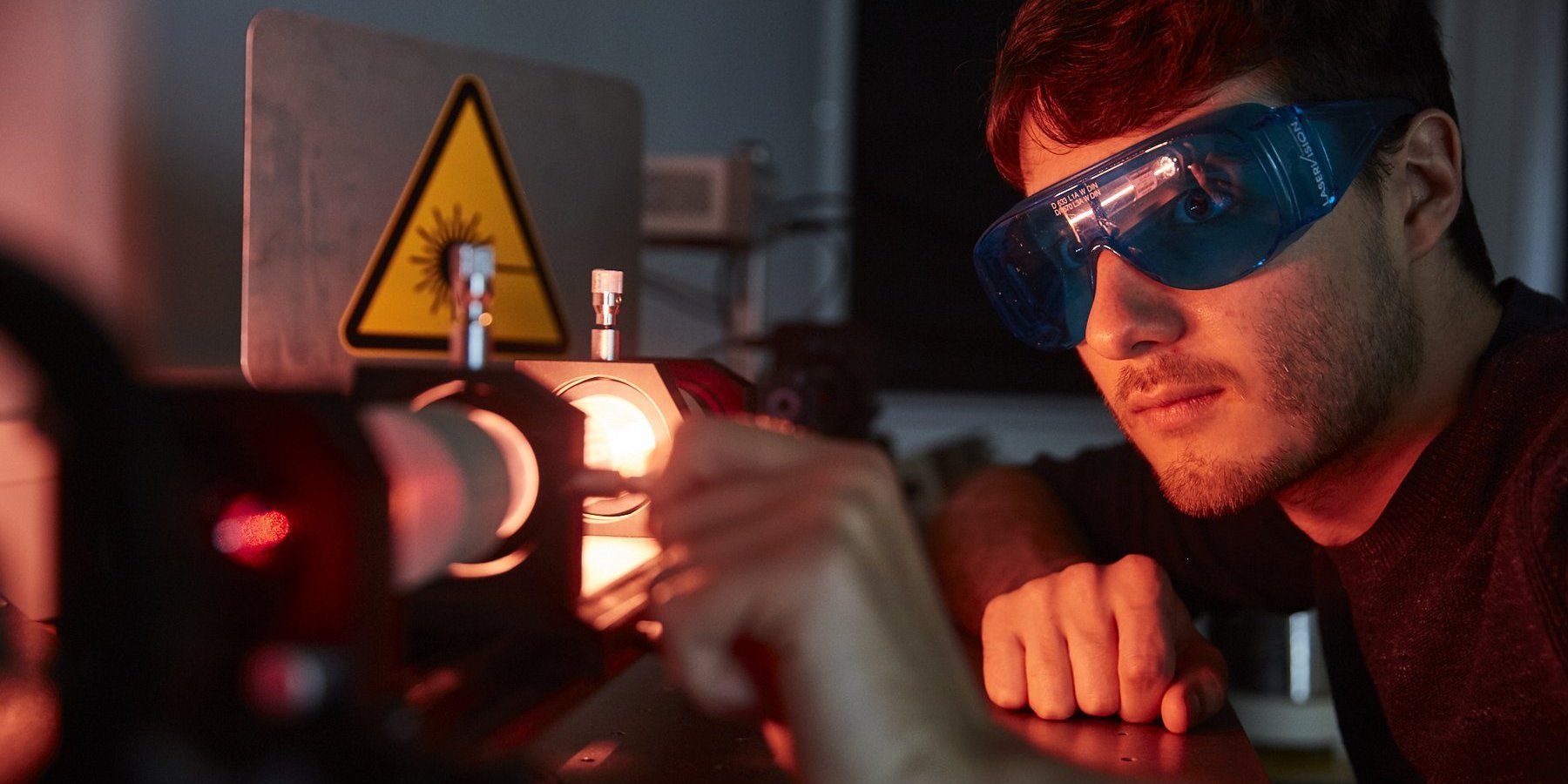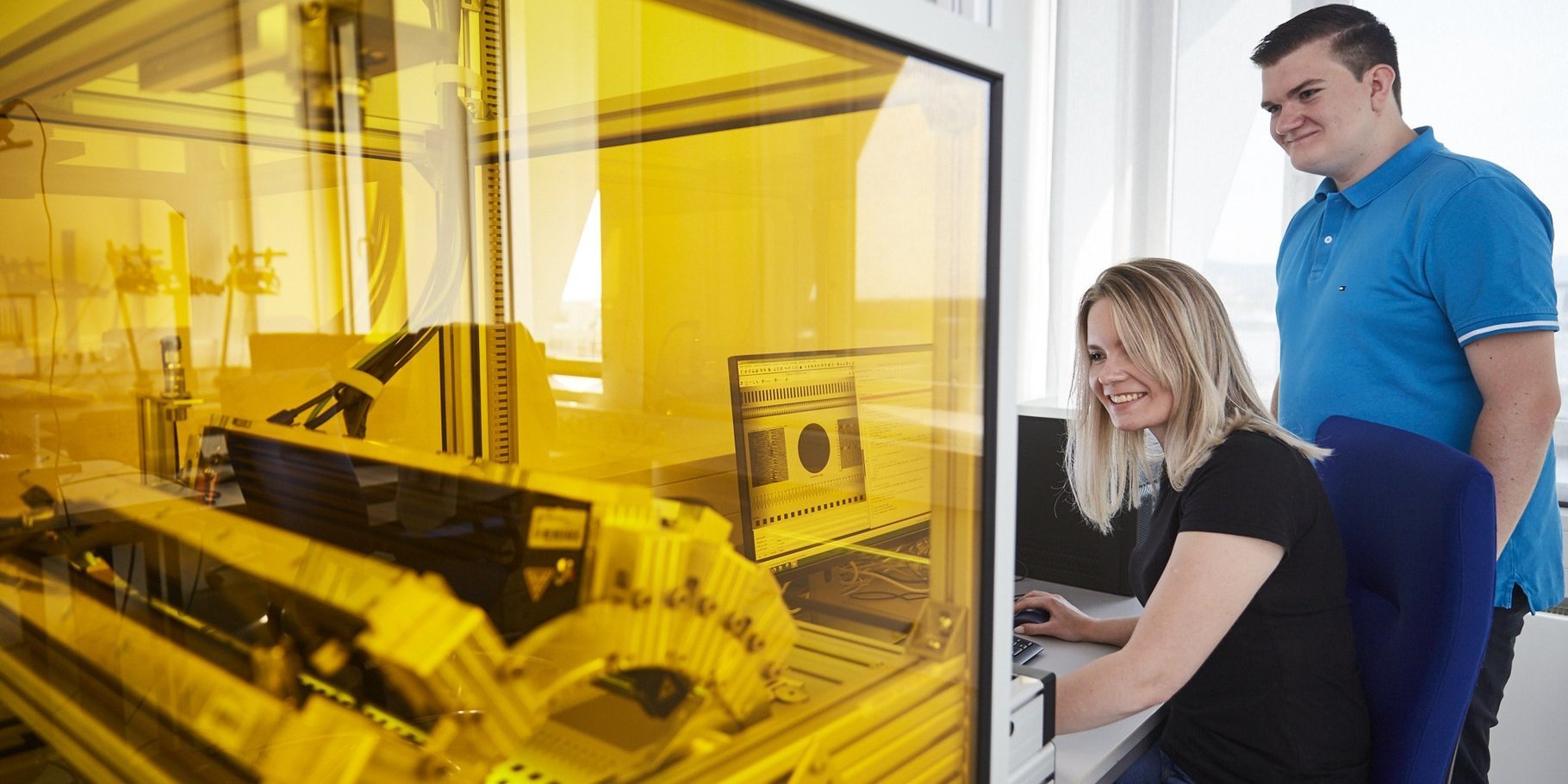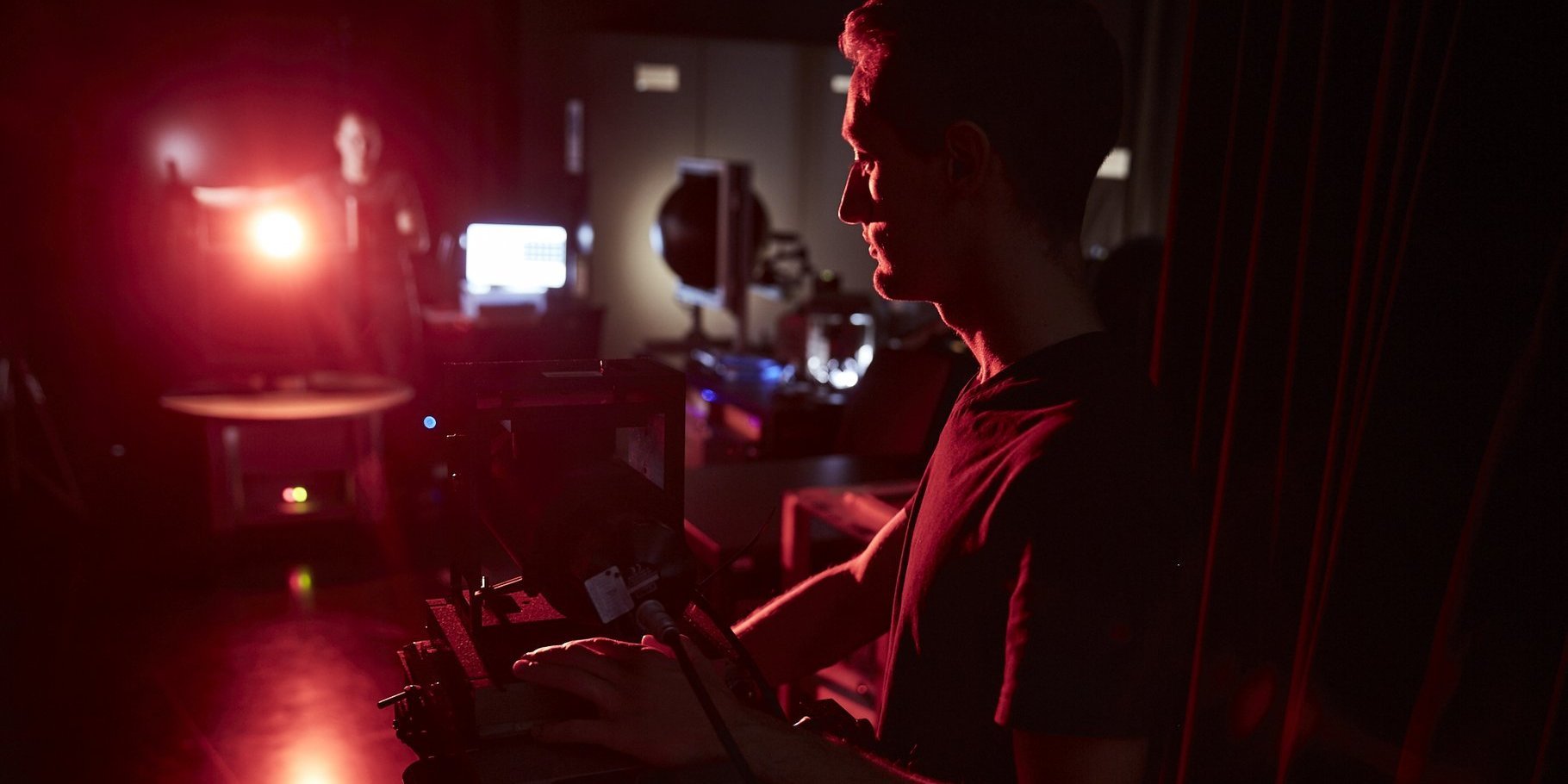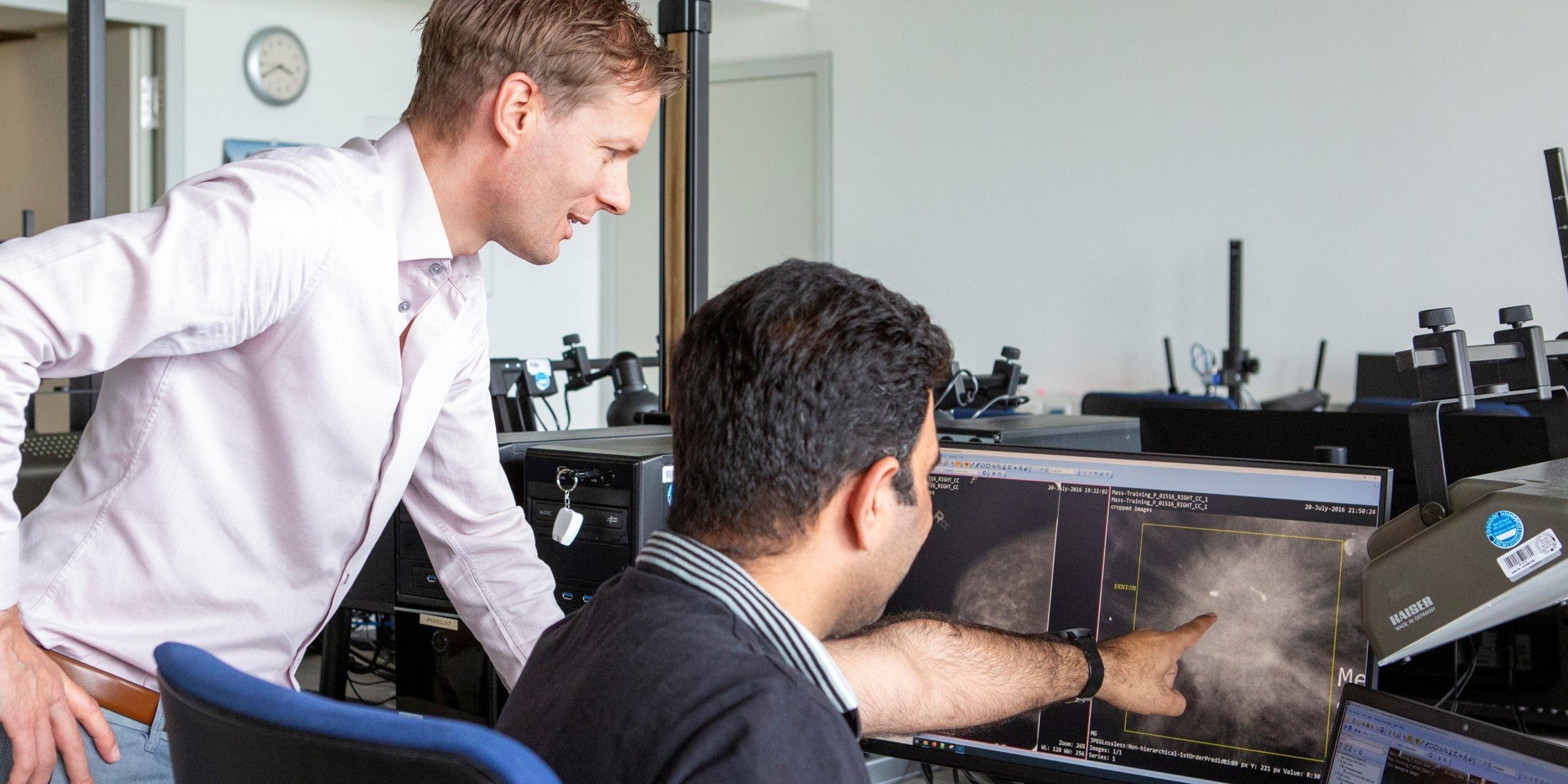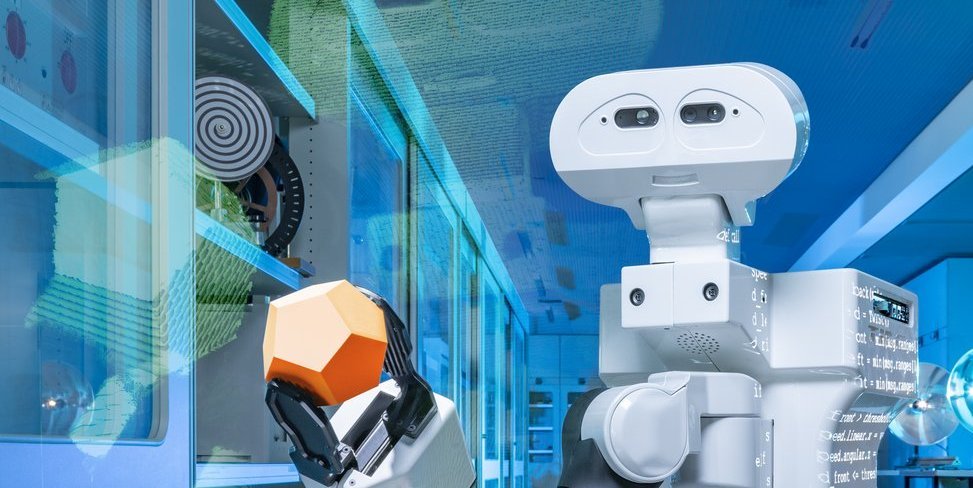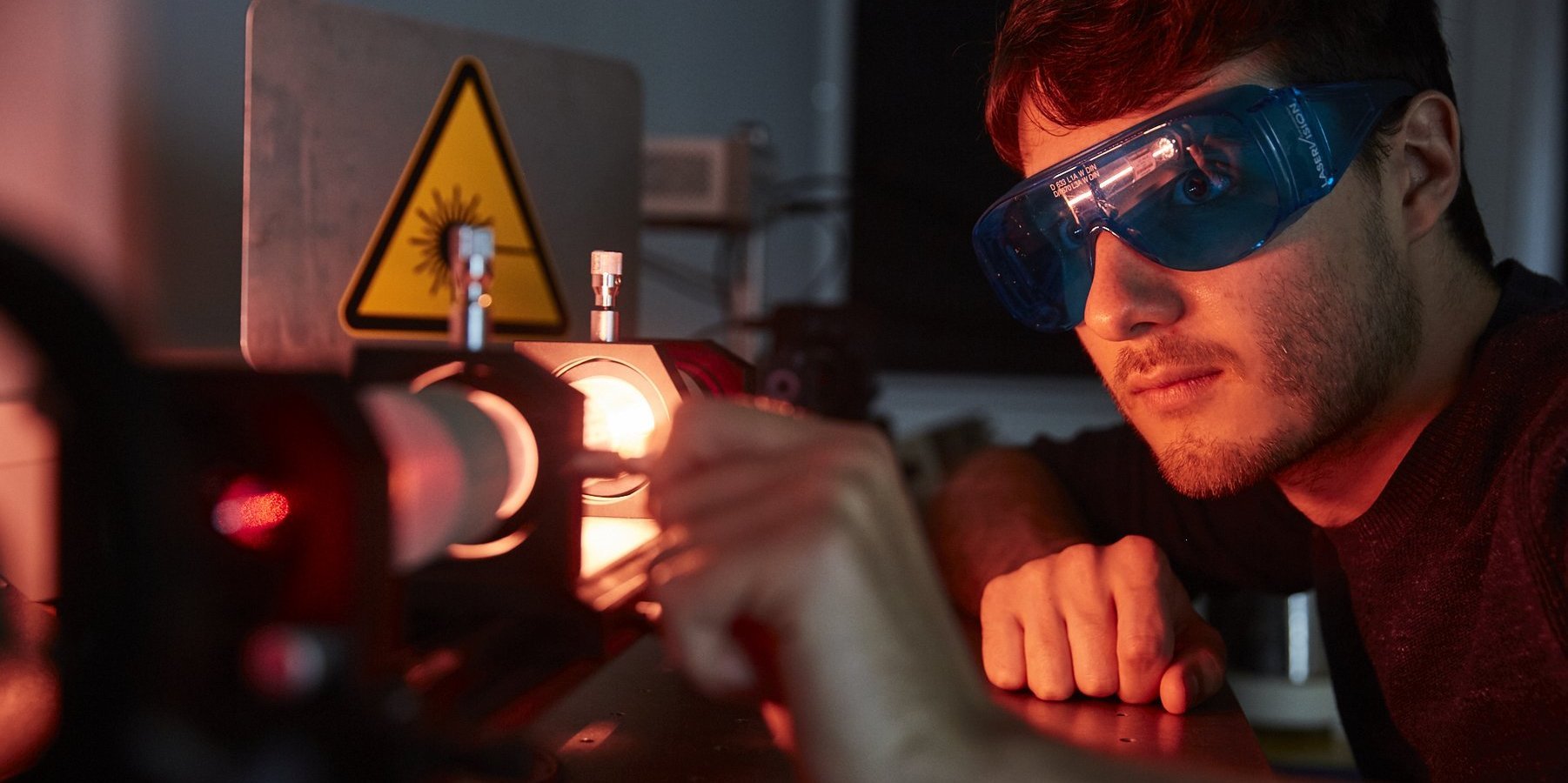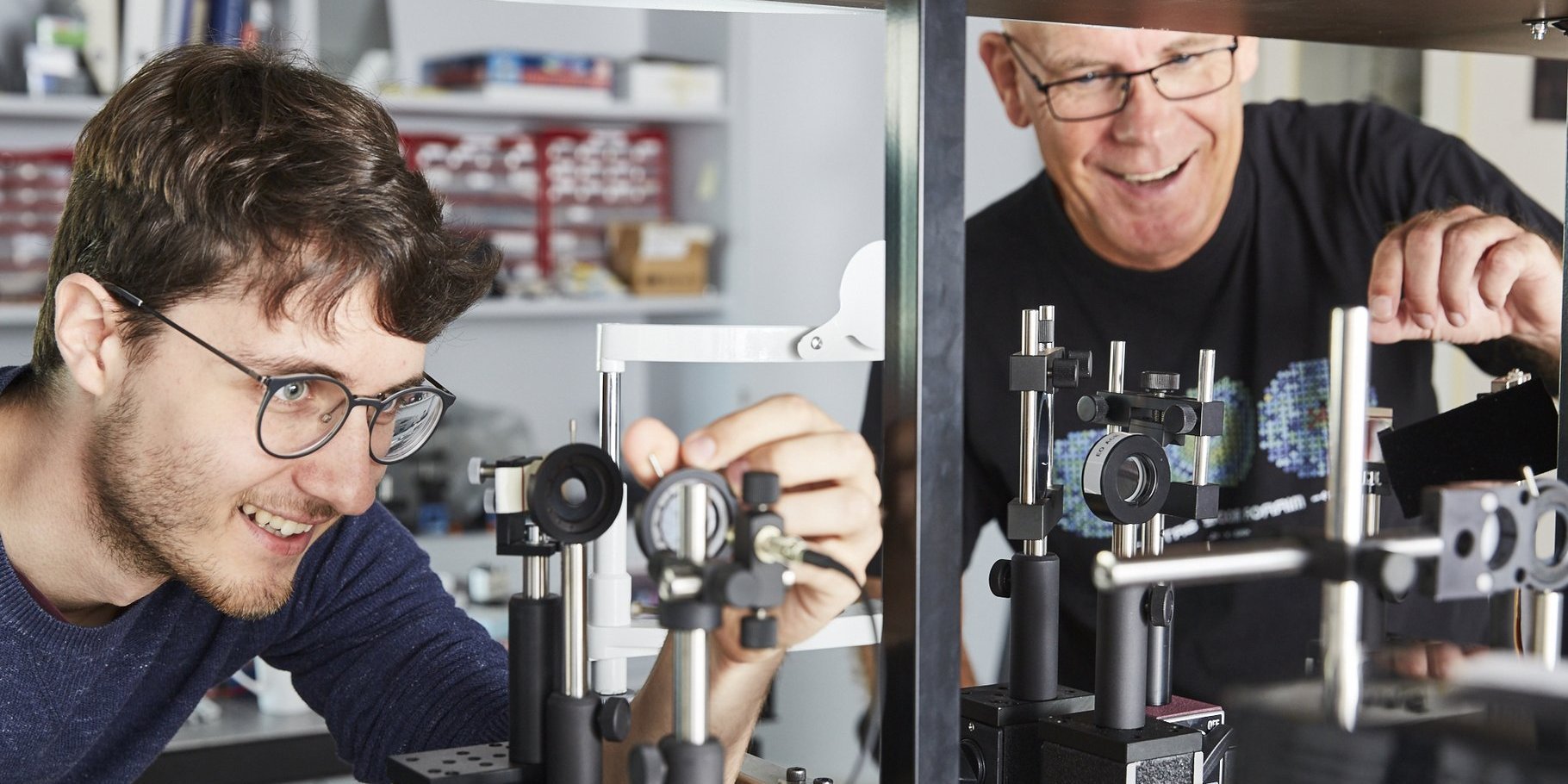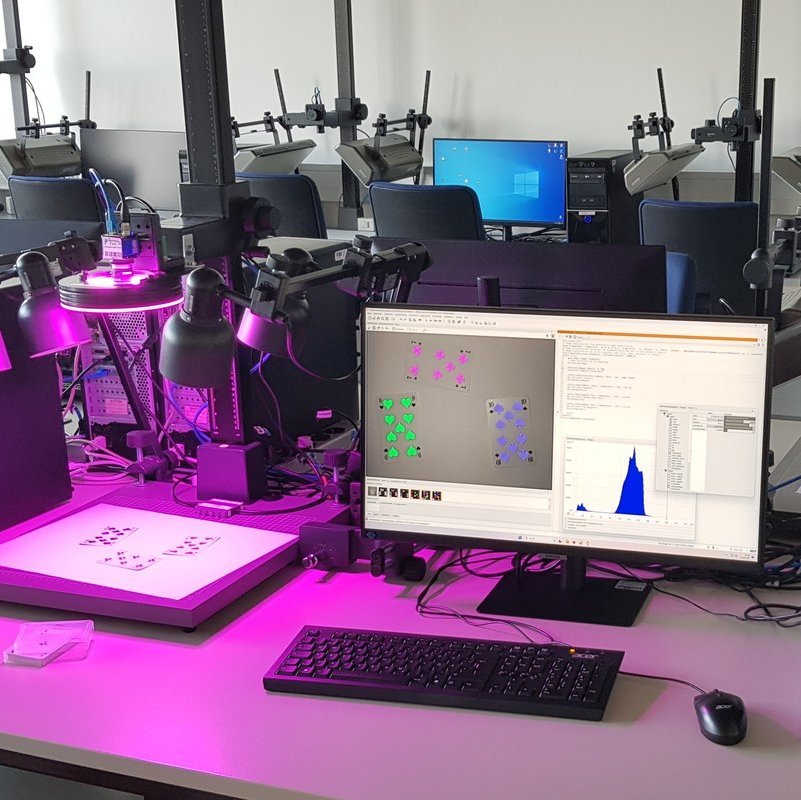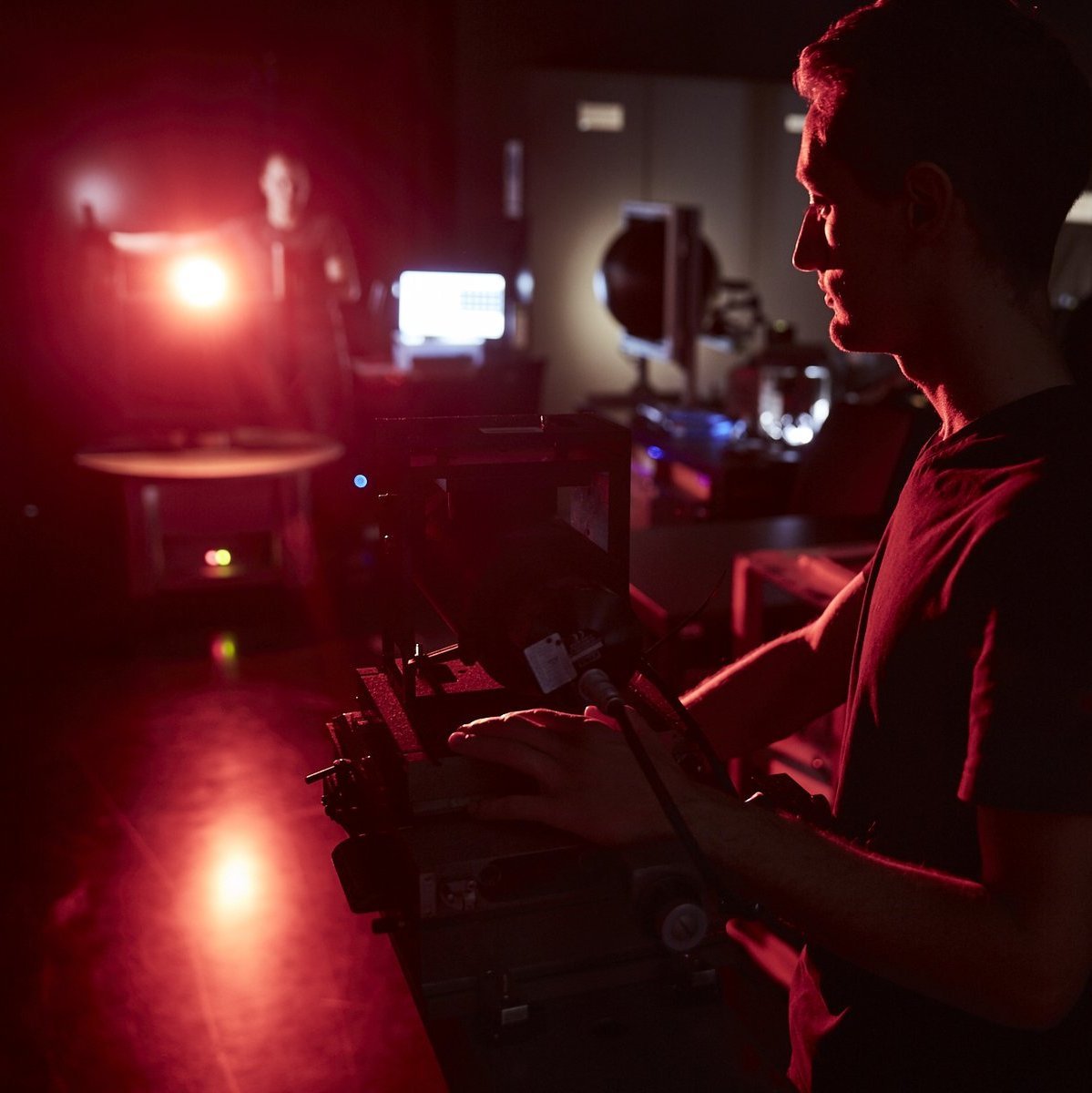Photonics and Machine Vision
Study Photonics and Machine Vision,
the innovative engineering discipline that helps us to shape our future with light.
- Do you like programming and want to make a difference in the real world?
- Do you want to solve the technical challenges of our time?
- Are you looking for an engineering course with attractive career paths for your personal development?
Then Photonics and Machine Vision (OBV) is exactly the right course for you! Find out more now.
Our dual study model
Would you like to study, but need to earn money or want to get started in practice straight away? With our dual study model, you gain industry experience right from the start, earn money from the first semester and still have time to study during the lecture period! Interested? We will be happy to put you in touch with a partner company!
The combination of image processing and optotechnical systems is the key to success here! Get an overview and discover careers further than the eye can see, in almost every branch of industry. With optotechnology and image processing at Darmstadt University of Applied Sciences.
After your Bachelor's degree, you can start your career or deepen your knowledge in our Master's degree course in Optical Engineering and Image Processing, which also enables you to go on to do a doctorate.
Medical image processing
Medical image processing techniques make it possible to look inside the human body. The 3D representation of organs and tumors enables the precise planning of operations and tailored therapies. On the OBV degree course, you will work on modern artificial intelligence algorithms that help doctors to diagnose diseases earlier. This is how you contribute to medical progress.
Robotics
Discover the magic of computer vision when machines learn to see and understand, from facial recognition to autonomous driving. In industry, robots enable sustainable production, in hospitals they relieve nursing staff. Bring machines to "life" in our OBV degree program and shape a fascinating future with us.
Environmental measurement technology
Lasers help us to better understand the environment and combat the causes of climate change. We can use spectroscopy to detect even the smallest pollution in the atmosphere, observe the health of forests or trace the history of glaciers. On our OBV course, you will learn how light interacts with matter and how you can use this knowledge to develop optical sensors for environmental measurement technology or medical diagnostics.
Photonics
Light can tell us stories from distant galaxies or open our eyes to the smallest microscopic details. We can cut steel with high-power lasers or take measurements in sensitive matter, such as the human eye, with low-power lasers. Whether for huge telescopes or tiny optics, in the OBV course we teach you how light propagation works in optical materials and how you can make photons work for you. Understand what you see!
Privacy policy
The data is stored and processed(in accordance with Art. 6 para. 1 f GDPR) for the purpose of establishing contact; in addition, processing in accordance with Art. 6 para. 1 a GDPR is possible with your consent for the purposes covered by this.
Your data will be deleted immediately after the request has been processed.
You can find information about your rights atfbmn.h-da.de/datenschutz.
You can send your request by post to the contractual partner
Darmstadt University of Applied Sciences
Department of Mathematics and Natural Sciences
Schöfferstraße 3
64295 Darmstadt
The OBV course is very practice-oriented. The theoretical content of the lectures is deepened in laboratory work during the course. Great importance is attached to the fact that the instruments and measuring devices correspond to the current standards of the industry, so that students encounter familiar equipment when they start their careers. At the same time, students are introduced to scientific teamwork. Within the framework of projects, these teams work independently on a topic, from planning, through experimentation and documentation, to presentation. This also makes our graduates fit for their career entry.


